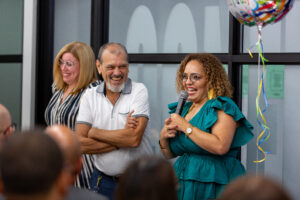
Video: Case study of Grupo Nexos’ capacity building services
Case study of Grupo Nexos’ Capacity Building services using an evidence-based wellness and trauma management program.
Learn More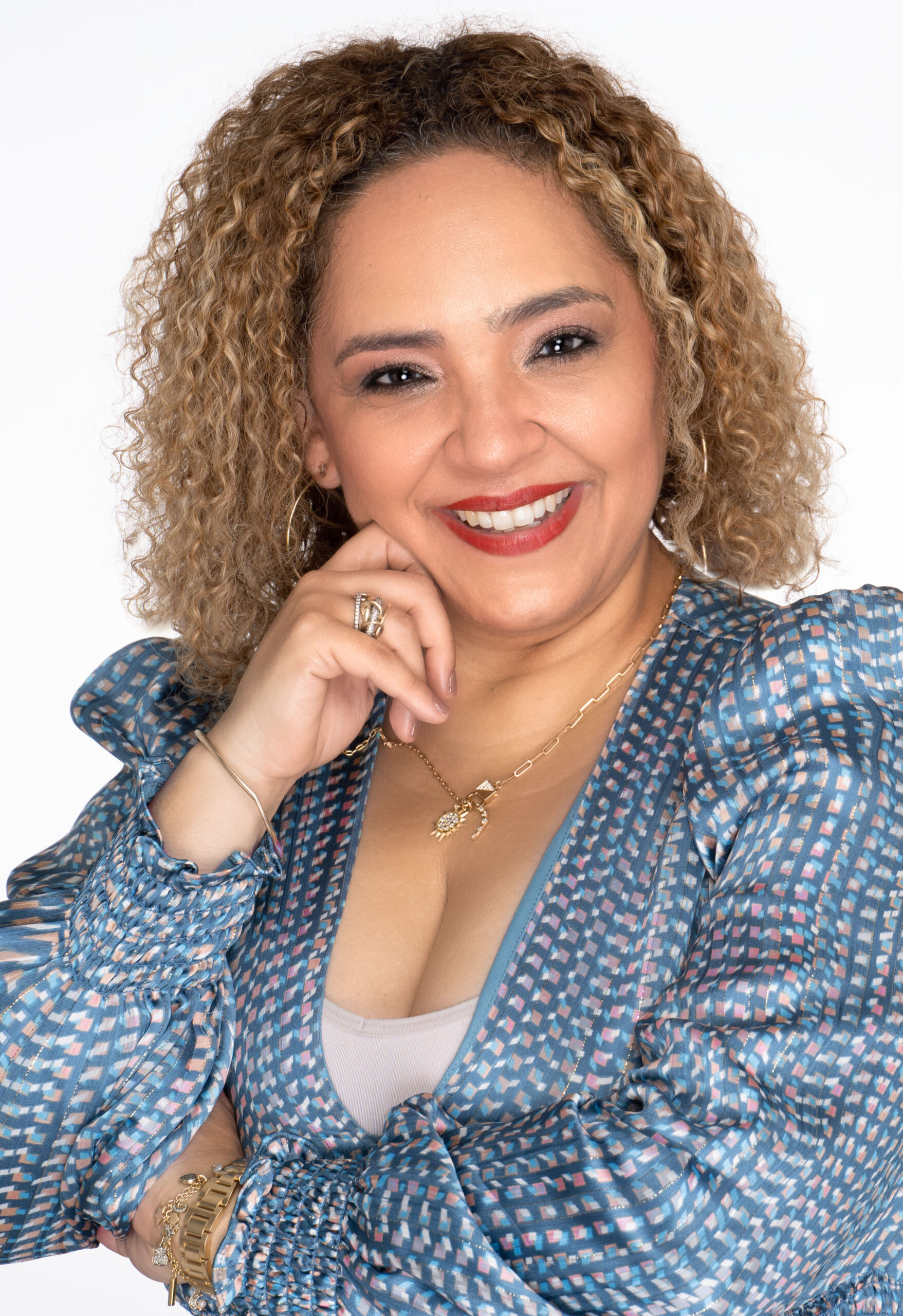
Puerto Rican Voice and Participation on the Executive Board of the International Union of Psychological Science
The International Union of Psychological Science (IUPsyS) elected Puerto Rican Dr. Marizaida Sánchez Cesáreo as the organization’s treasurer. Dr. Sánchez Cesáreo is the first Puerto Rican woman to hold a leadership position in this organization, which brings together professionals and associations dedicated to mental health worldwide. In her role, Sánchez Cesáreo will promote an agenda representing Caribbean identities in international psychology, bring new resources to the institution, and foster collaborations with other organizations.
“The International Union of Psychological Science has tremendous potential to engage in collective impact efforts to attract new members, expand its capacity, and consolidate its position as a global psychology representative. I look forward to contributing to the organization’s growth and the advancement of a diverse agenda on the issues driving our profession and impacting the countries of our region,” said Sánchez Cesáreo, who is the CEO of Grupo Nexos, a Puerto Rican nonprofit organization providing consulting, capacity building, and evaluation services using evidence-based practices.
Sánchez Cesáreo holds a Ph.D. in Community Clinical Psychology with a specialization in Women’s Studies from DePaul University in Chicago. In addition to leading Grupo Nexos, she chairs the Governor’s Advisory Council on Juvenile Justice Prevention. She has played a key role in the local creation and dissemination of evidence-based practices. Recognized for her contributions to public health, she has initiated more than 50 community health projects grounded in the collective impact framework.
Sánchez Cesáreo’s election took place during the 33rd International Congress of Psychology, recently held in Prague, Czech Republic. The organization elected its board of directors to drive the entity’s strategic plans for the next four years. The Congress brought together over 4,000 psychology professionals from around the world.
The International Union of Psychological Science has 96 member countries and 20 affiliated organizations, representing over a million psychologists worldwide. It seeks to promote the development, practice, and representation of psychology as a science at national, regional, and international levels. Founded in 1889 during the first International Congress of Psychology in Paris, it holds consultative status with the United Nations Economic and Social Council, maintains formal association relations with UNESCO, and official relations with the World Health Organization (WHO).
Learn More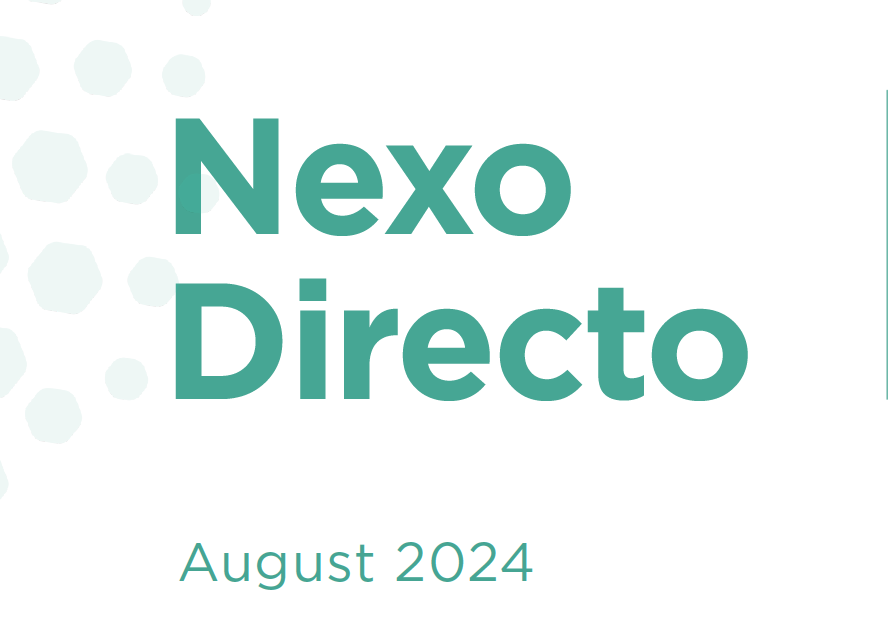
Nexo Directo Newsletter | August 2024
Access our quarterly newsletter here: Nexo Directo Newsletter | August 2024
Learn More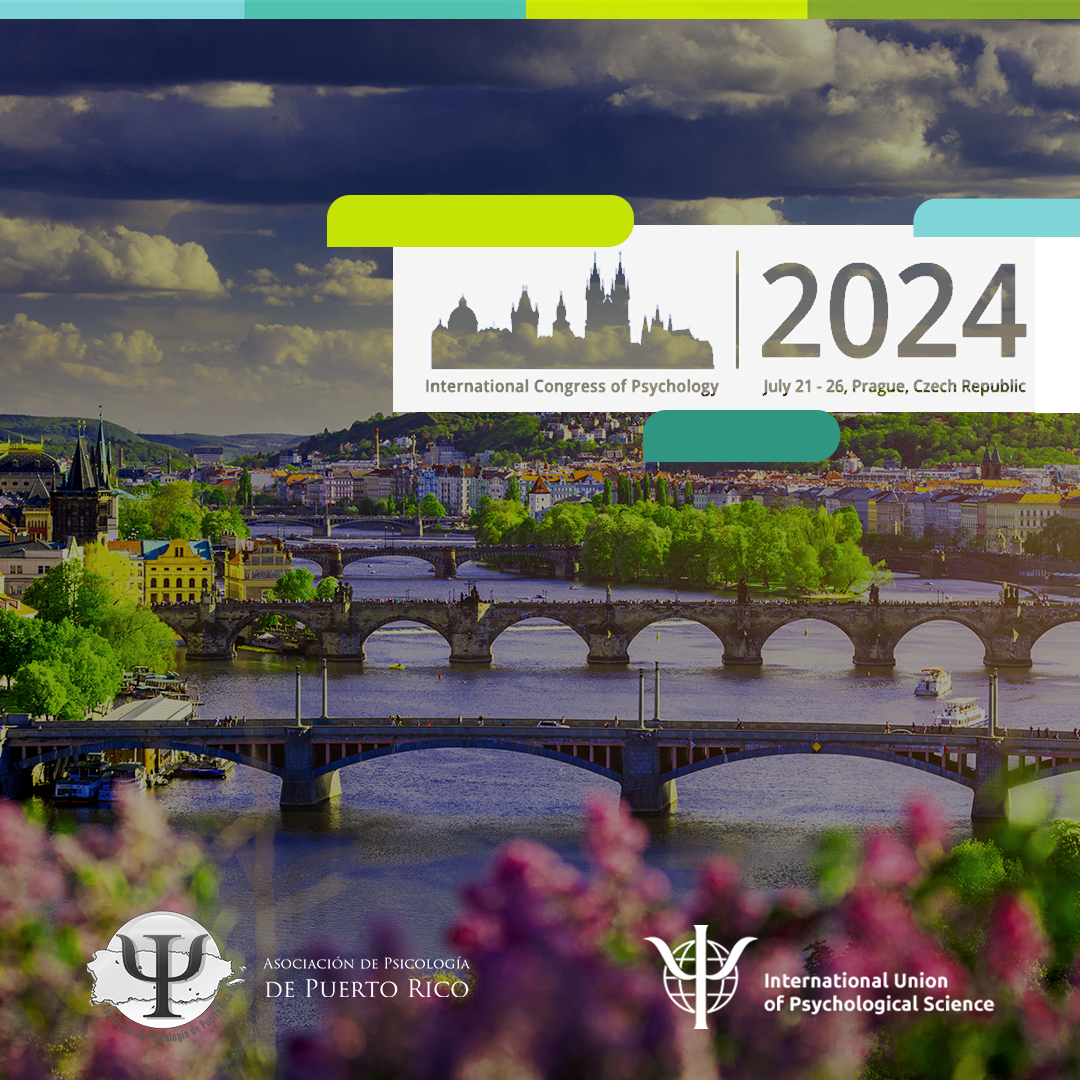
International Congress of Psychology
Puerto Rico will participate in the International Congress of Psychology in Prague, organized by the International Union of Psychological Science. The Puerto Rico Association of Psychology will be present, and our members are part of the delegation, offering a keynote address on strategies to improve employee well-being and oral presentations on well-being, trauma, and care experiences.
The conference will be held from July 21 to 26, 2024. Access our participation schedule here: GN – Itinerario Conferencia Internacional Psicología 2024
Learn More
Health education project launches tool to strengthen parenting skills
The photo book showcases dynamics to help parents or caregivers connect with their teenage children.
Learn More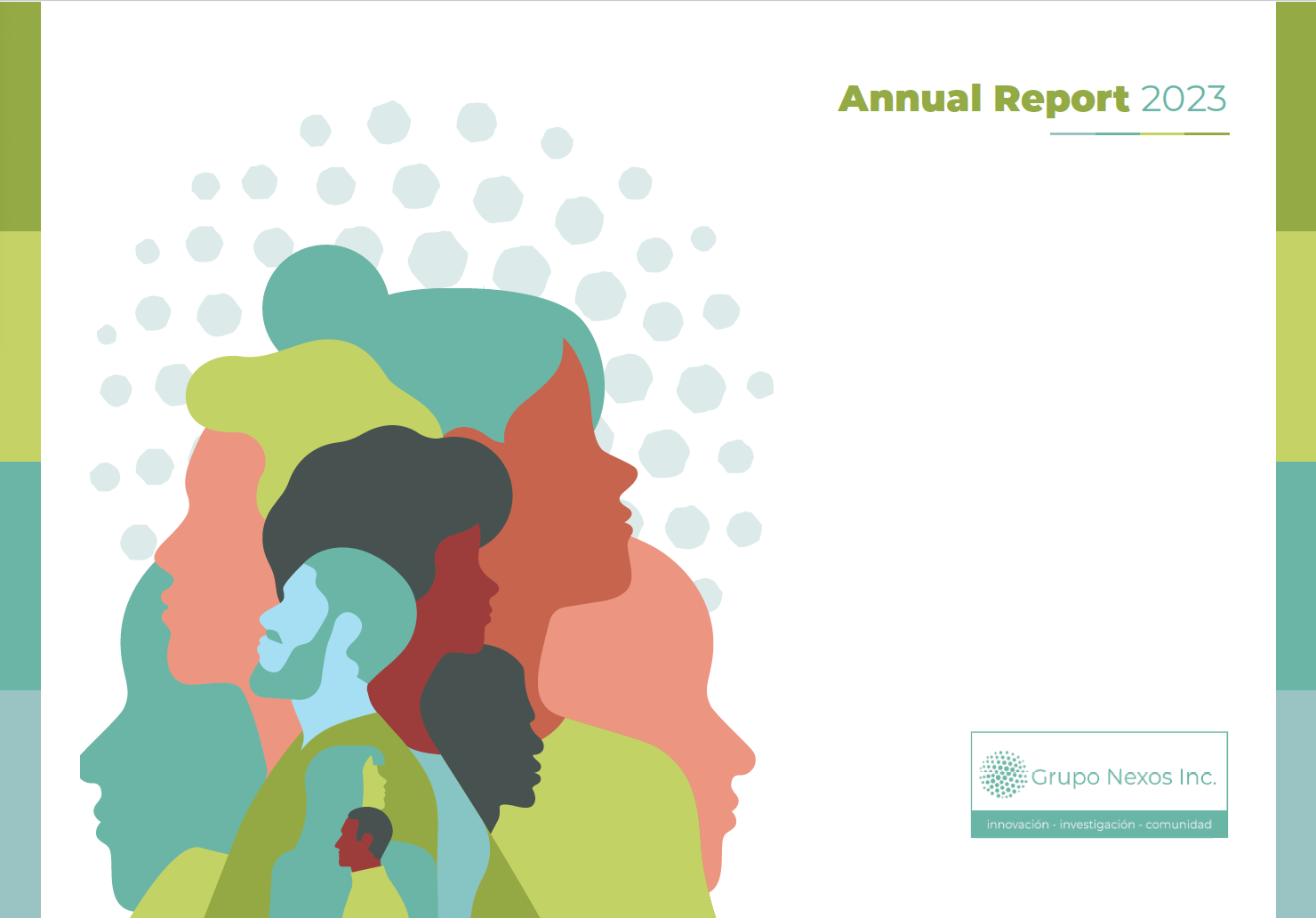
Grupo Nexos: Annual Report 2023
The annual report for Grupo Nexos for the year 2023 is now available. The first annual report of Grupo Nexos is a milestone that marks our journey since our foundation in 2021. This report highlights our efforts and achievements from our inception until December 2023. You can access the report through the following link: Grupo Nexos: 2023 Annual Report
Learn More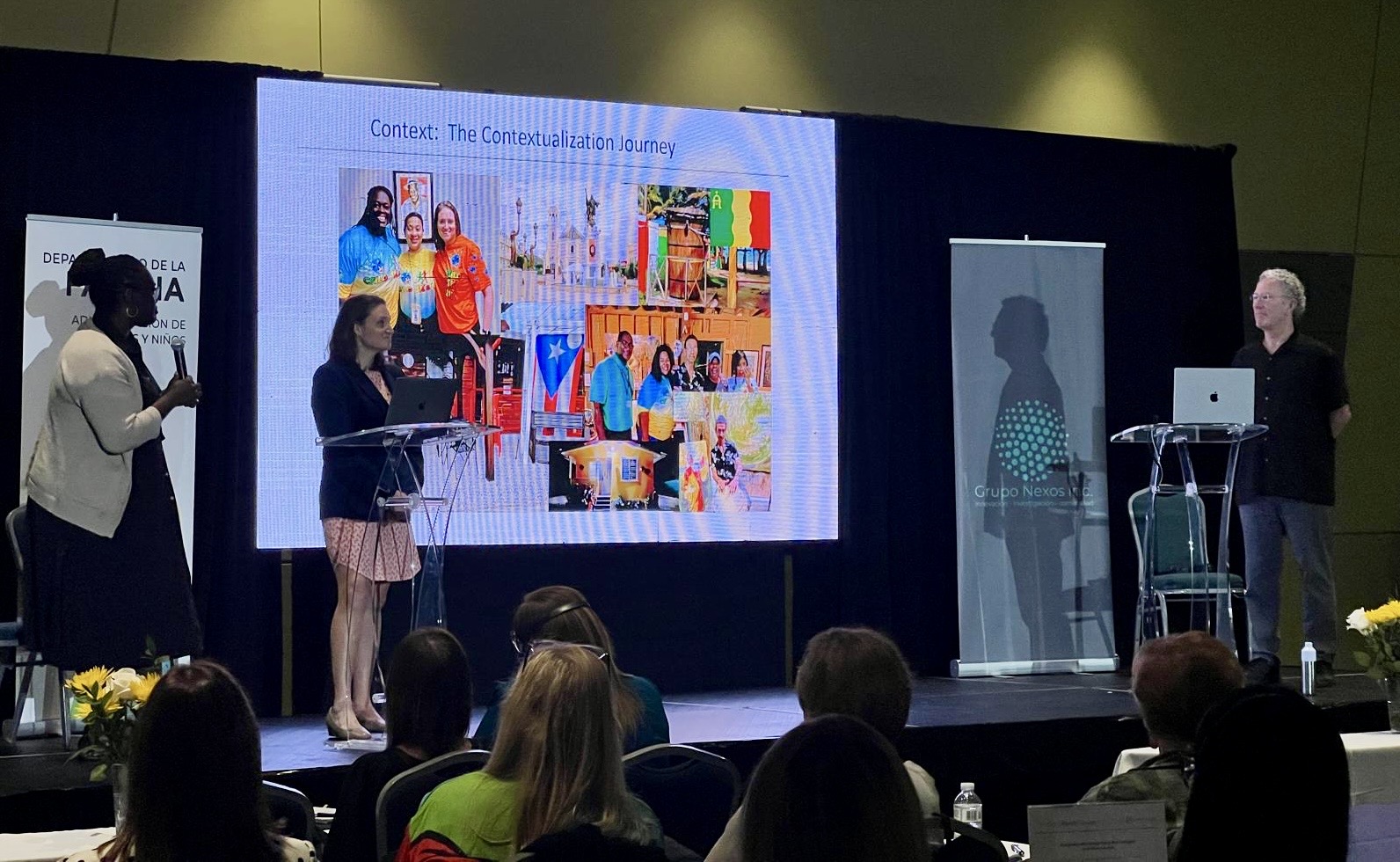
Capacity building on Functional Family Therapy model
The family-centered intervention will be used in Puerto Rico to transform prevention and family preservation services.
Learn More
El Nuevo Día: Organizations receive a $6 million federal grant to address child poverty and health inequity.
The funds are intended to subsidize research aimed at promoting long-term changes in how minors from 0 to 21 years old, their parents, and caregivers receive services.
Learn More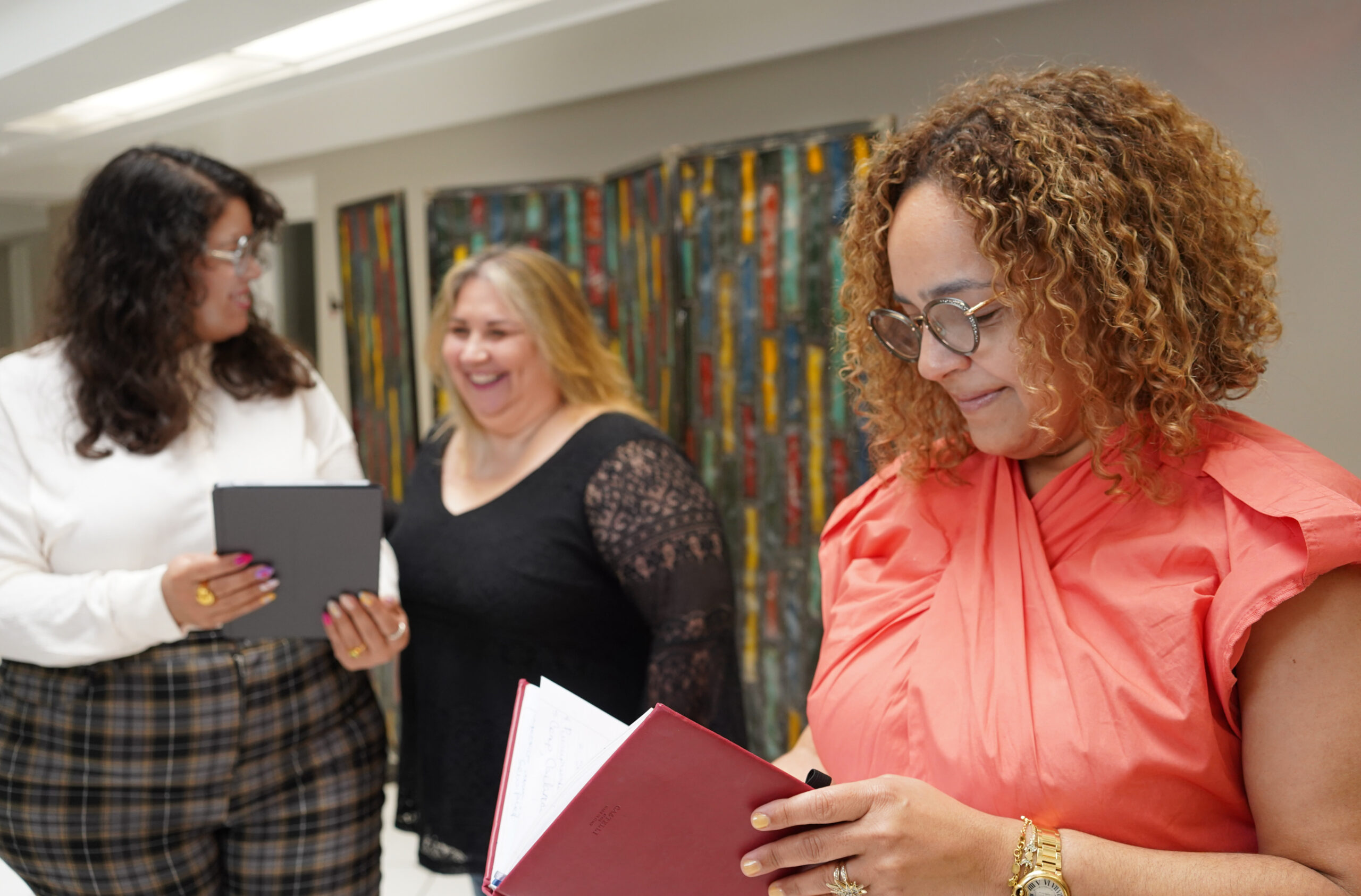
Innovative research initiative receives $6M award to fight health disparities fueled by poverty in Puerto Rico
The initiative will employ a collective impact approach resulting from the collaboration of local organizations and national partners.
Learn More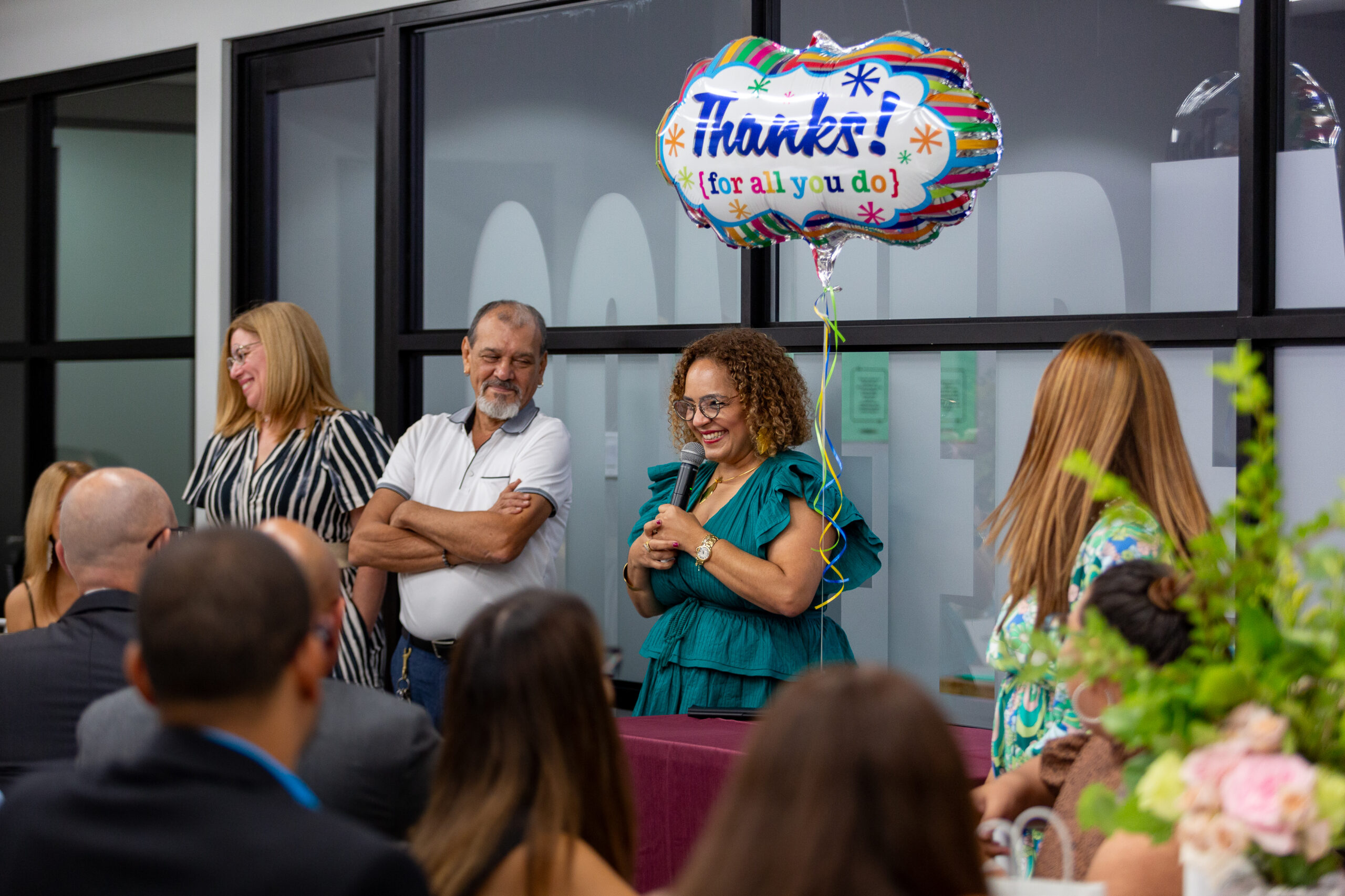
Grupo Nexos inaugurates its new headquarters
Grupo Nexos celebrated the grand opening of its new headquarters in San Juan, Puerto Rico, on August 10, 2023, with the participation of a large group of collaborators and guests. The space now houses the organization’s administrative offices and shared workspaces.
Dr. Marizaida Sánchez Cesáreo, the Executive President of Grupo Nexos, marked the occasion as a significant milestone for the team, which has grown to include over a hundred individuals, encompassing employees, contractors, and collaborators. “Many years ago, upon returning to work in Puerto Rico, I drafted a proposal for what I envisioned as a nonprofit organization dedicated to advancing the health and well-being of communities through evidence-based practices. Grupo Nexos is the culmination of that vision.”
The offices are situated at Centro Altamira, 501 Perseo Street, Suite A, in San Juan.
Learn More
















